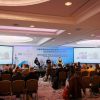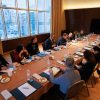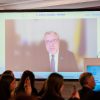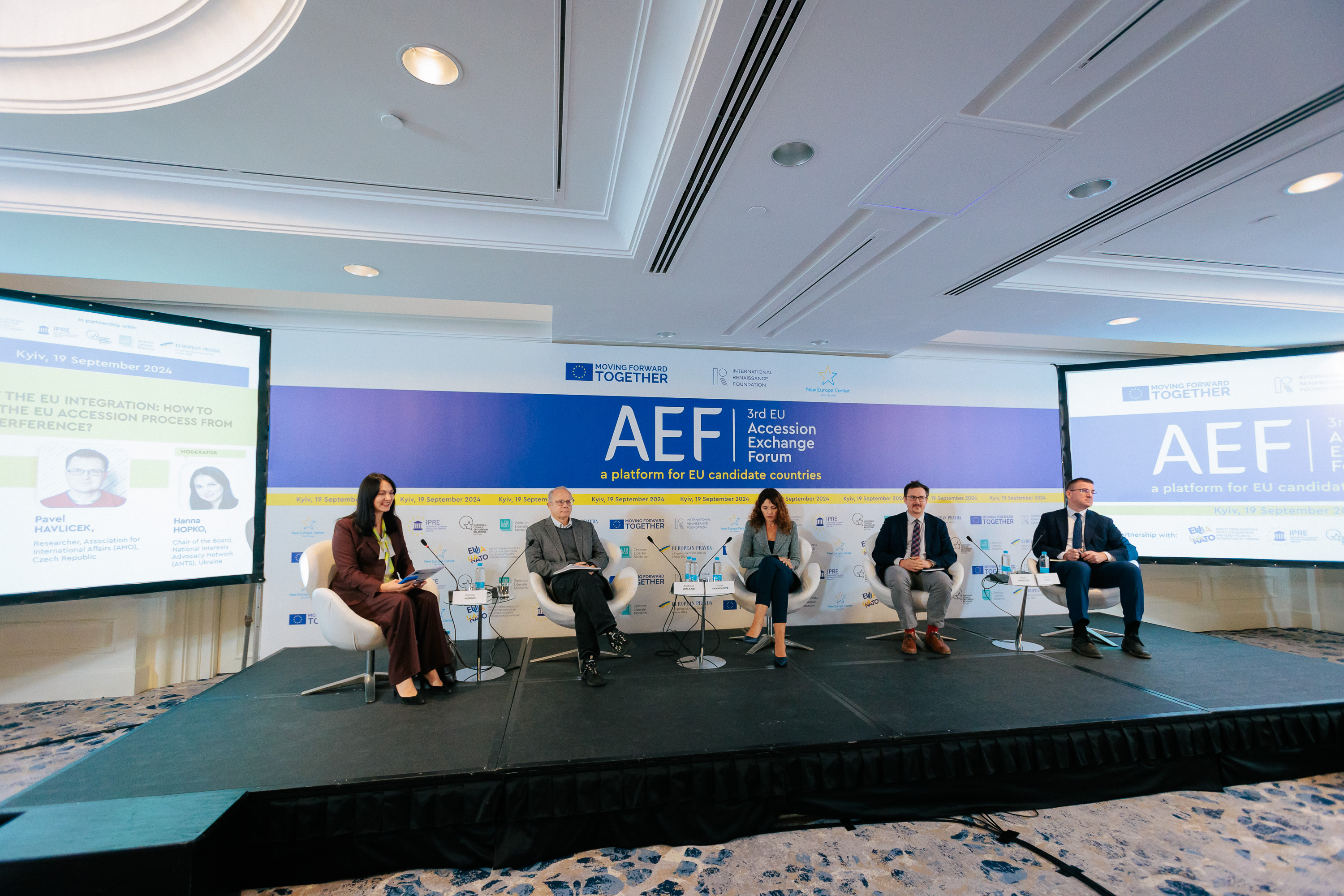
We bring to your attention the key messages of the speakers from the Session 3 “Spoilers of the EU integration: how to safeguard the EU accession process from Russia’s interference?” during the 3rd EU Accession Exchange Forum:
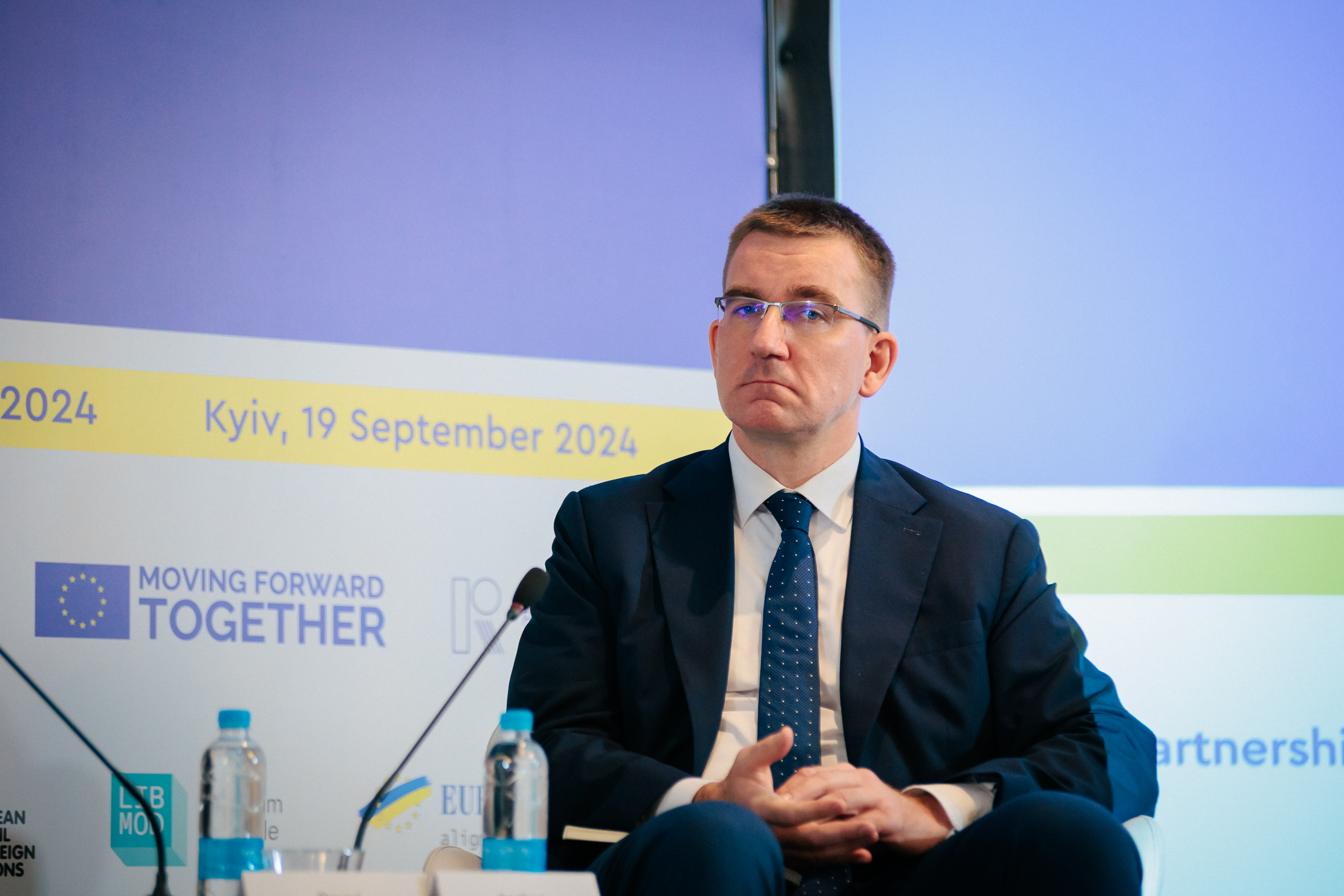
András Rácz, Senior Research Fellow, German Council on Foreign Relations (DGAP), Germany:
The public support for Ukraine in EU is slowly, but steadily decreasing. The question of support to Ukraine gets heavily politicized across the EU. We all should internalize the fact that our populations are still largely in favour of Ukraine. But the support to Ukraine shall not be taken for granted anymore The trend is going down.
We need to explain the stakes toward the public. In February 2022, spring 2022 apparently our public understood very well how high the stakes have been. But this understanding is apparently going down.
We need to do a lot more to counter the propaganda against Ukraine coming both from outside the EU — Russia, China, various proxy forces, Iran — but also tackle the propaganda coming from inside the European Union.
Before the full-scale invasion, most of the Europeans knew practically nothing about Ukraine. There was a void, and the void is very easy to be filled with propaganda. So, do as much as possible to fill the void, because there is still a lot of it. People don’t know anything. And how do you reach, how one can reach European public opinion? You cannot talk individually to all the 500 million Europeans. So, you need to talk to the opinion leaders.
Take them to places where they see the war, they can go home and report about what war means today. Not what it meant two and a half years ago, but what it means today. Make them hear the sirens, make them hear the explosions. Bring the war closer to the European public, because this is what may help raise our support. How to bring the war closer? The war crimes. Ukraine, Ukrainian NGOs and the Ukrainian Prosecutor’s Office and the Ukrainian State together have been doing a genius job in documenting Russian war crimes.
In times of war, freedom of speech regularly gets limited because it’s of essential importance. I would strongly be in favour of being more active and, yes, nasty if necessary, against those who spread Russian propaganda, both coming outside from the EU and inside from the EU.
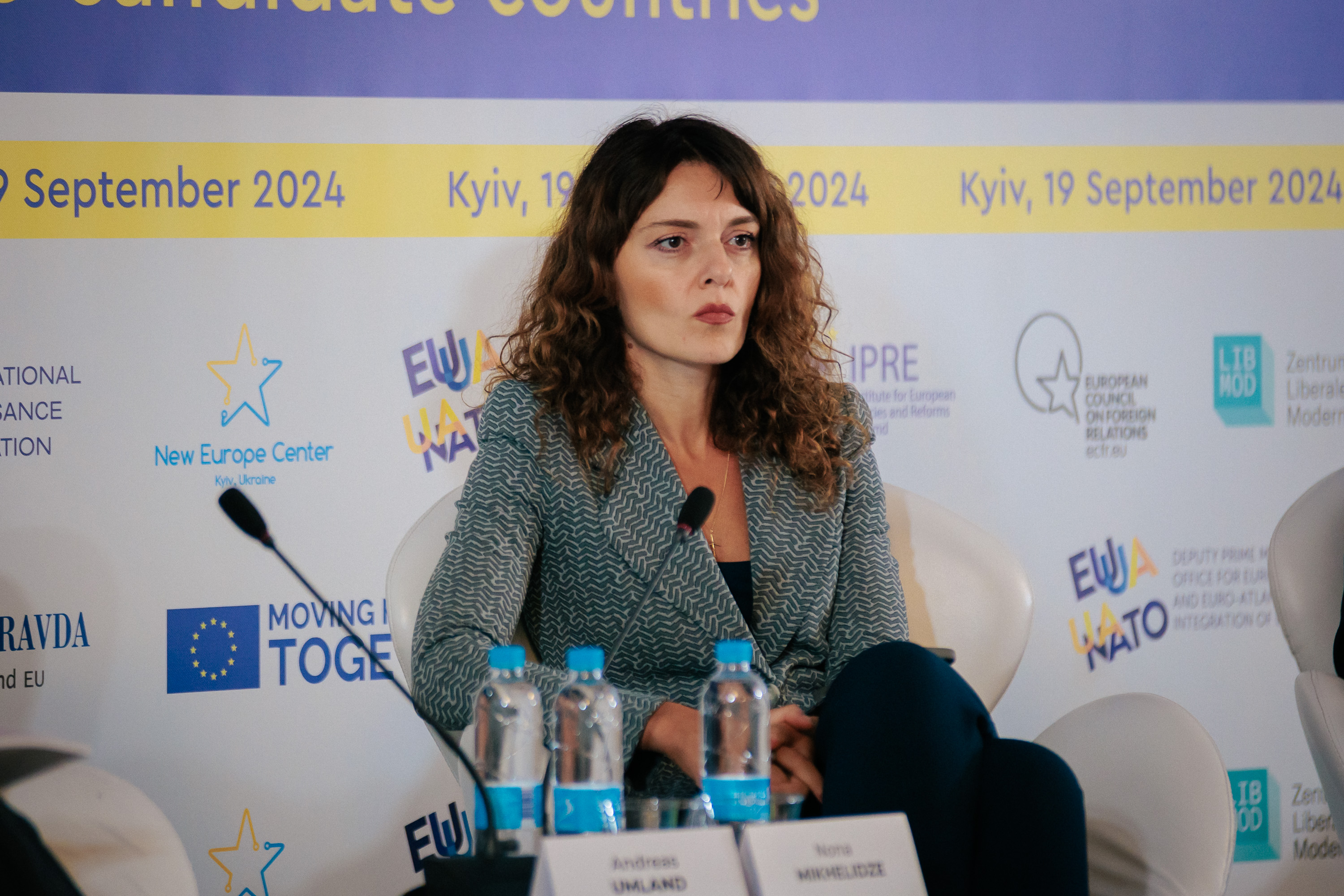
Nona Mikhelidze, Senior Fellow, Istituto Affari Internazionali (IAI), Italy:
We are really witnessing kind of the complex period in the sense that we have to deal not only with Russia exploiting very well, so-called proxies inside the EU, but we are seeing also China moving maybe indirectly against this process. And I think that Georgia is a perfect case to this, where you see China with its kind of the big infrastructure investments and projects stepping in the region and offering a lot of things without any kind of conditionality, which is pretty much attractive to the hybrid regimes.
The initial push and willingness of countries to look up to Europe and not Russia was because the EU transmitted this sense of a good life and being a model of development. Now China also transmits that it can be a model of development and that they can be an alternative to the EU.
The EU has to consider some things in the way of the enlargement process, actors and factors: actors are, for sure, the populist parties and so the Euroscepticism.
Now we are witnessing the second wave of populism inside the EU. The first way we saw in 2016 with Brexit. But now we are seeing it with the elections inside Germany, we see it also with rightist parties coming to power.
Using the war and security can be a factor that can spoil the future of enlargement. And it can be used against Ukraine in this issue. This is a diffused idea in Italy that bringing Ukraine inside the EU will not be an added value to the Union, but it brings much more insecurity.
In the most of the EU countries, it is a lack of understanding how high the stakes are. If Russia succeeds in derailing the EU integration process, we risk further insecurity in the region. Because it would mean to put candidate countries in perpetual limbo.
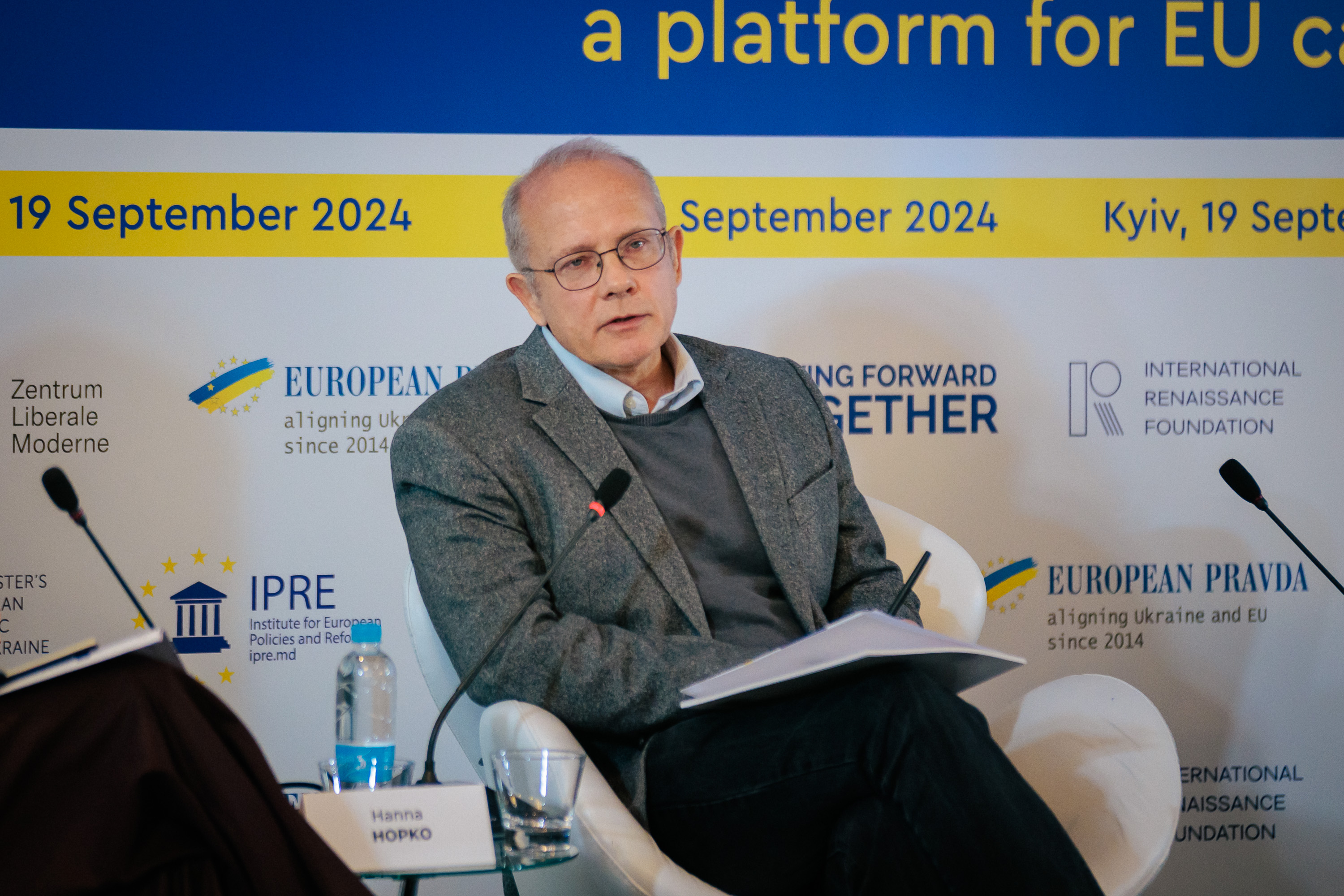
Andreas Umland, Analyst, Stockholm Centre for Eastern European Studies (SCEEUS), Sweden:
I think that the dominating of large faction, now de facto pro-Russian parties, anti-Western parties is going to be the main problem in countries like Germany, also for other countries. The direct interference of Russia and China has now become a focus of the intelligence services.
This sort of allies of convenience, the internal anti-Western and at least indirectly pro-Russian forces are going to be the biggest problem. And here one has to have a sophisticated approach to them.
One has to develop sophisticated counter narratives to the ones of the de facto pro-Russian forces. For this, one has to take their critique more seriously than this is done in much of the counter argumentation so far. Also, both journalists and intelligence services have to investigate the links of these parties to Russia and then disclose them. And not only to investigate the links, but also the many dubious phases they have in their biography, like with Sahra Wagenknecht.
The search for Russian connection can sometimes be sort of unproductive, because it doesn’t capture the internal problems and anti-Westernism that exists in much of Western Europe. Such groups in Germany, France, Italy, Spain and other countries sometimes may have such links, but sometimes not. However, they are still de facto allies of Russia with their anti-enlargement narratives.
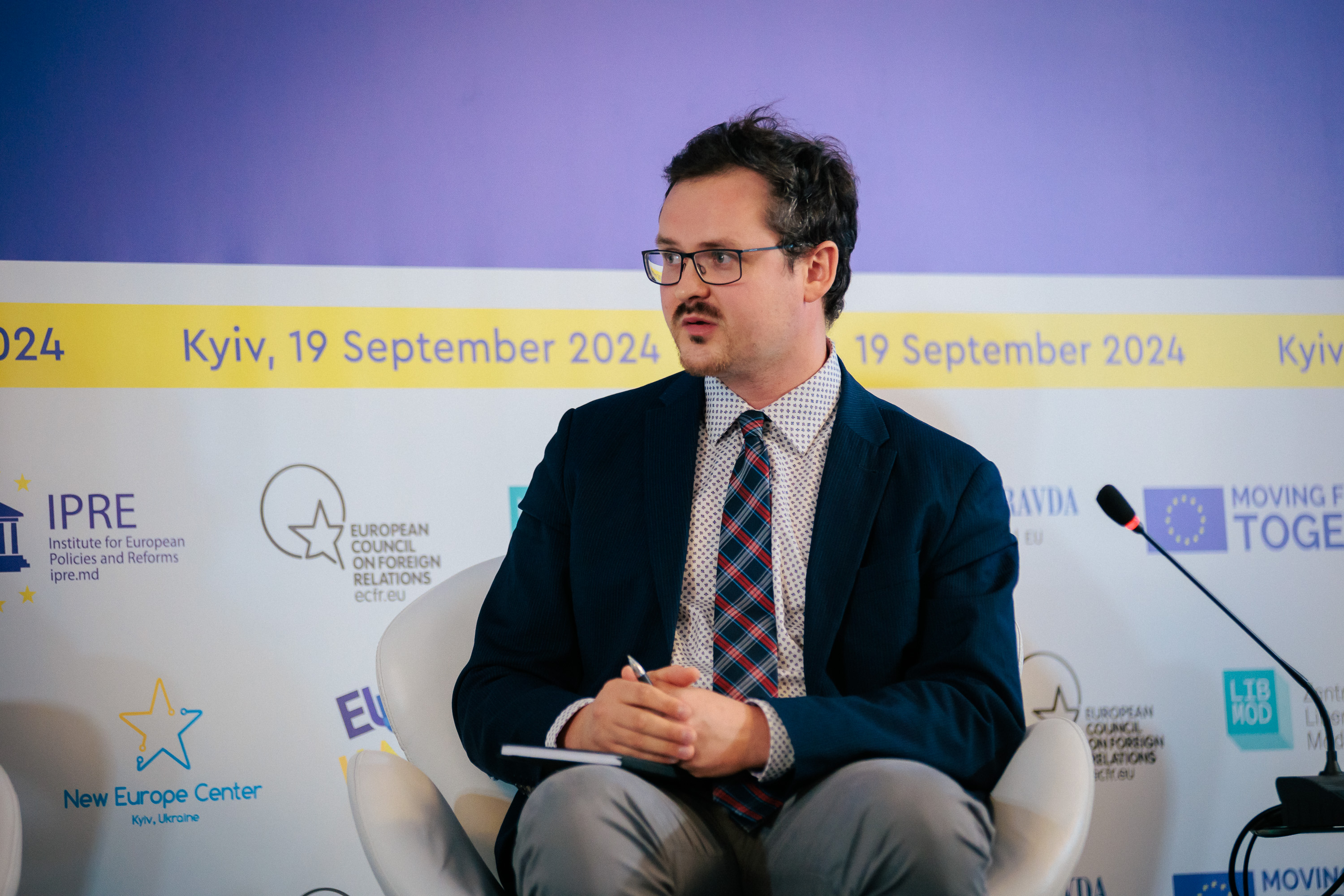
Pavel Havlíček, Research Fellow, Association for International Affairs (AMO), Czech Republic:
There are a lot of focusing on the EU, but I think we really need to spend more time on the region itself — on Eastern Europe and also Western Balkans. Because it really takes two to tango in that sense. And both Russia and China are very much aware that it’s both the EU and its internal weaknesses and the partner countries themselves that really are needed to make it a success when it comes to enlargement.
I wanted to actually focus on the EU as well. I see and will at least mention the three factors that I see as a problem.
The first is the lack of knowledge about enlargement as such. If you ask most of the people in the street, what they know about this, basically that’s nothing. This is a fertile ground for manipulation, and we are seeing a lot of this being basically manifested and abused by local populists. And these are both people from political sphere and also the anti-systemic forces. Also, these are the guys that are often anti-Ukrainian as well.
There is also an issue with political sustainability. We are also, in the Czech Republic, facing elections. And if you ask me, I don’t think the government has done everything to make the process sustainable in order not to become another Slovakia after next year’s autumn elections. So, from a full-fledged ally of Ukraine, we might very much turn into a much more problematic actor because there is no cross-party consensus on support for Ukraine.
I think the third problem also, when it comes to Czechia and other countries, is that we are not quite sure how the EU project should look like in the future. I think it was Charles Michel, who mentioned that, we should be ready internally by 2030. There should be the domestic homework done. But in our case, having a 5-party government does not help to have a consistent approach to the EU and which kind of the EU we would like to see in the future. And we are far from having the consensus among EU27 on how we should the EU fit for maybe up to 35 countries. This is a big homework that lies ahead of us.
The internal weaknesses that my colleagues mentioned will come into play. But we cannot allow to lose some of the upcoming events: the referendum in Moldova, the elections in Georgia, and the domestic developments in Ukraine – we need to be mindful of that and keep the balance.
One of the clear issues that should not be repeated is our perception of the EU. If we present the EU to our citizens as a milking cow for money, as we do it for many years in Czechia, then we are doomed. If we just say that EU here is just to give us money, then this is a trap, and you will not be able to get out of this.
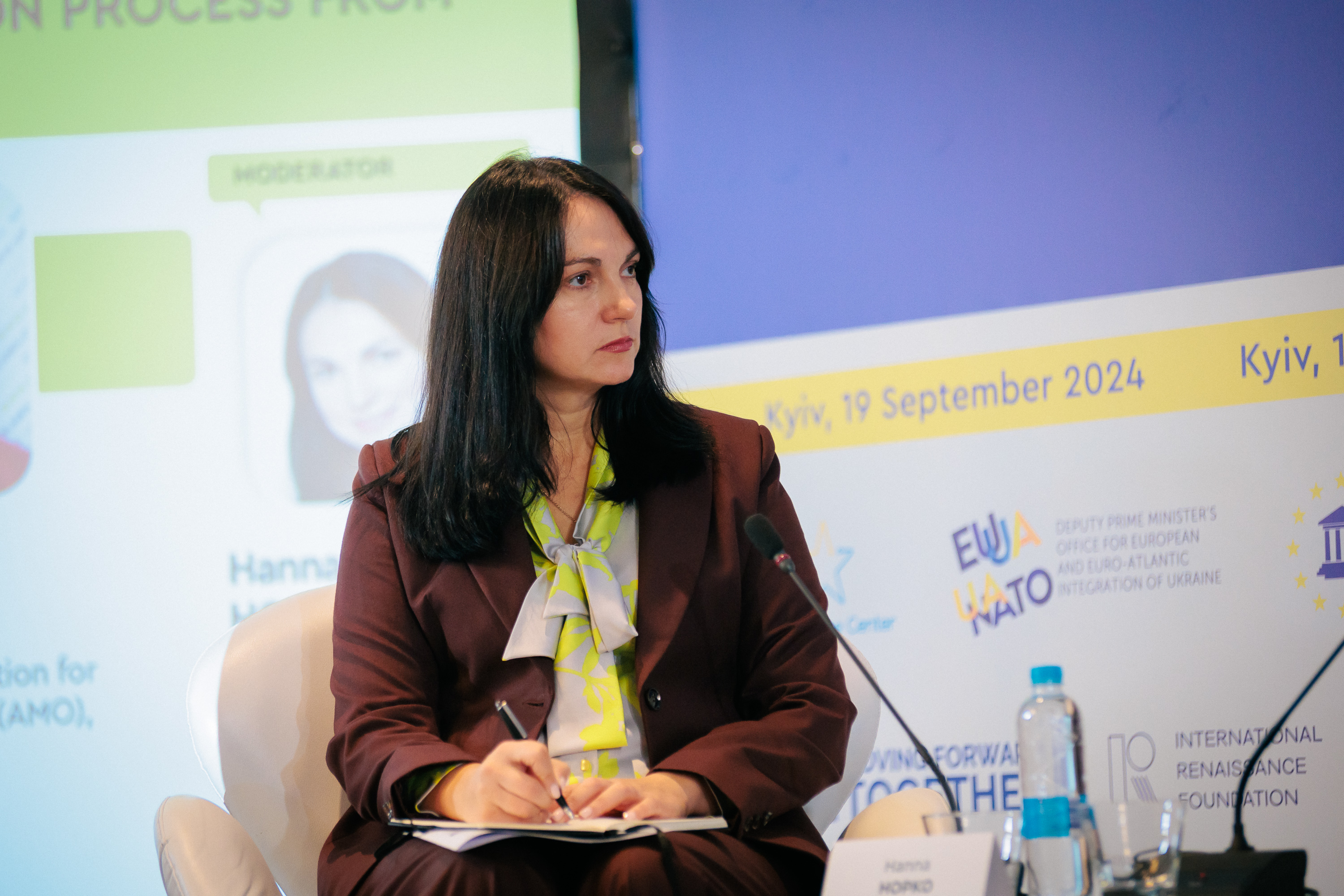
Moderator: Hanna Hopko, Chair of the Board, ANTS, Ukraine:
There were debates in the previous panels about the endgame of the enlargement. President Zelenskyy will present the Victory Plan, which is really important. And we have heard about some of the components, military, economical etc. The vision for Ukraine’s future enlargement to NATO and the EU. But the key here – Russia must be defeated. The question is, and we ask European about it, what is the Victory Plan in the EU for Ukraine, what are the commitments? Because this is the war of attrition, and we need more resources. When we started our campaigns like “Make Russia pay” or “Bankrupt Russia’s war machine”, we want to see the commitment, especially from countries like Germany.
We are thankful to Germany for being the second biggest contributor, but there are some decisions, including giving Taurus, lifting restrictions on deep strike, helping with air defence shield – this could become game changers in general.
Spoilers and interferences are minimizing the ambitions of the EU to have the Victory Plan. But I would dream to see Transatlantic Victory Plan and understanding that more contribution and investment are needed.
I’m very thankful to those who are here, who believe in Ukrainian victory, who advocate for our victory. And this is really important because this war is winnable and Russian deimperialization is coming.
Video recording of the Forum is available here.
PHOTO report of the Forum is here.
The EU Accession Exchange Forum is organized by the New Europe Center in partnership with the Office of the Deputy Prime Minister of European and Euro-Atlantic Integration of Ukraine, the International Renaissance Foundation, the European Council on Foreign Relations, the Institute for European Policies and Reforms, the Center for Liberal Modernity and the European Pravda. The EU Accession Exchange Forum is taking place with EU support, within the EU-funded “European Renaissance of Ukraine” project implemented by the International Renaissance Foundation.
New Europe Center is greatful for wide media support of the Forum to informational agency UKRINFORM.



